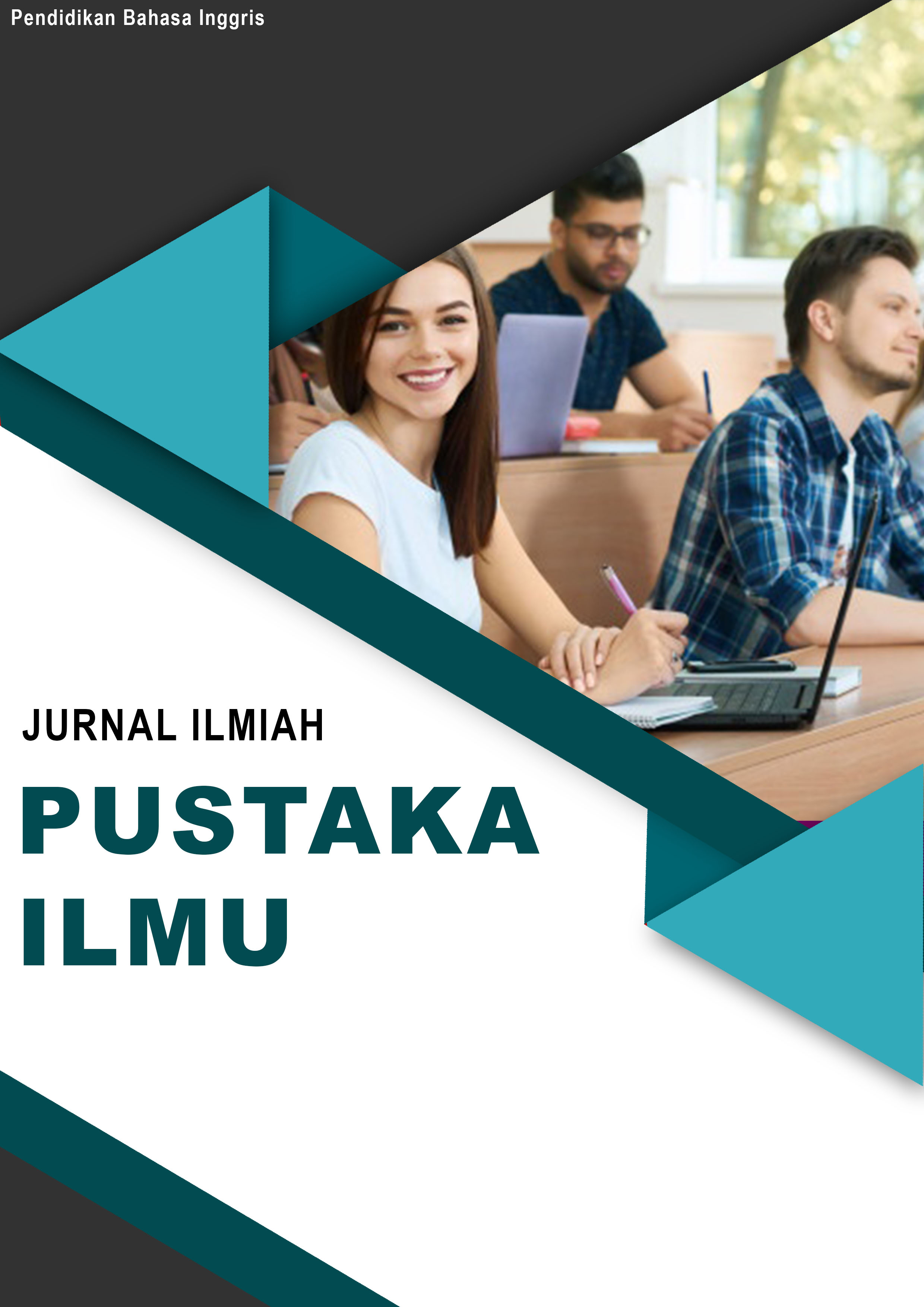THE DESTRUCTION OF HEGEMONIC MASCULINITY IN CHETTIAR’S IS MAN A WINNER OR A LOOSER?
Kata Kunci:
Destruction, Hegemonic Masculinity, Poem.Abstrak
This study intends to discuss about the destruction of hegemonic masculinity. Based on the problem formulation, the purpose of this study is to explain how the destruction of hegemonic masculinity is seen in Chettiar‟s Is Man a Winner or a Looser? This research concerns in discussing the destruction of hegemonic masculinity seen in Chettiar‟s Is Man a Winner or a Looser? The researcher scopes the discussion by only focusing the phenomenon of the destruction of hegemonic masculinity happen in traditional patriarchal family. Research is classified into two groups; quantitative research and also qualitative research. In this case, the researcher uses qualitative research as a part of research design. In qualitative research, it produces the data in a form of word or verbal. Moreover the researcher implements library research to find the data. The method of library research is by analysing the historical record or the document. Meanwhile for the technique, the researchers have to take a note on what being analysis are of course by seeing the document or data that will support the research.
Referensi
Al Falaq, J. S., & Puspita, D. (2021). CRITICAL DISCOURSE ANALYSIS: REVEALING MASCULINITY THROUGH L-MEN ADVERTISEMENT. Linguistics and Literature Journal, 2(1), 62–68.
Amelia, D. (2016). Indonesian literature’s position in world literature. Teknosastik, 14(2), 1–5.
Ayu, M., & Pratiwi, Z. F. (2021). THE IMPLEMENTATION OF ONLINE LEARNING IN ENGLISH LANGUAGE TEACHING DURING PANDEMIC: THE TEACHERS’VOICE. Journal of Research on Language Education, 2(2), 93–99.
Chavez, M. (2000). Teacher and student gender and peer group gender composition in German foreign language classroom discourse: An exploratory study. Journal of Pragmatics, 32(7), 1019–1058.
Evayani, W., & Rido, A. (2019). Representation of Social Actors in Sexual Violence Issue in The New York Times and The Jakarta Post Newspapers: A Critical Discourse Analysis. Teknosastik, 17(2), 43–55.
Febriantini, W. A., Fitriati, R., & Oktaviani, L. (2021). AN ANALYSIS OF VERBAL AND NON-VERBAL COMMUNICATION IN AUTISTIC CHILDREN. Journal of Research on Language Education, 2(1), 53–56.
Kardiansyah, M Yuseano. (n.d.). Metaphysic Paradox upon Daemon Character as Delineated in Philip Pullman’s Northern Lights.
Kardiansyah, M Yuseano. (2016). The index of hero’s power and nobility in Shakespearean tragedy drama: A semiotic study. Teknosastik, 14(2), 11–17.
Kardiansyah, M Yuseano. (2017). Tubuh dan Relasi Gender: Wacana Pascakolonial Dalam Novel “The Scarlet Letter” Karya Nathaniel Hawthorne. Poetika: Jurnal Ilmu Sastra, 5(1), 58–67.
Kardiansyah, Muhammad Yuseano, & Qodriani, L. U. (2018). ENGLISH EXTRACURRICULAR AND ITS ROLE TO IMPROVE STUDENTS’ENGLISH SPEAKING ABILITY. RETORIKA: Jurnal Ilmu Bahasa, 4(1), 60–69.
KENDRA, D. A. N. (2015). PASSIVE VOICE IN INDONESIAN AND ENGLISH POEMS: A COMPARATIVE STUDY OF FROST’S AND RENDRA’S POEMS BEN TUK PASIF DALAM PUISI BA HASA INDONESIA DAN. JIA, 2(1), l7-28.
KUSWOYO, H., SUJATNA, E. V. A. T. S., & CITRARESMANA, E. (2013). Theme of imperative clause in political advertising slogan. Research Journal of English Language and Literature, 1(4), 162–168.
Mandasari, B. (n.d.). FACTORS INFLUENCING TEACHERS’BELIEFS ON THE USE OF AUTHENTIC MATERIALS TO TEACH LISTENING.
Mandasari, B. (2017). Implementing Role Play in English for Business Class. Teknosastik, 15(2), 60–63.
Mandasari, B., & Aminatun, D. (2019). Uncovering students’ attitude toward vlogging activities in improving students’ speaking ability. Premise: Journal of English Education and Applied Linguistics, 8(2), 214–225.
Mertania, Y., & Amelia, D. (2020). Black Skin White Mask: Hybrid Identity of the Main Character as Depicted in Tagore’s The Home and The World. Linguistics and Literature Journal, 1(1), 7–12.
Pranoto, B. E., & Afrilita, L. K. (2019). The organization of words in mental lexicon: evidence from word association test. Teknosastik, 16(1), 26–33.
Puspaningtyas, N. D., & Ulfa, M. (2021). Students’ Attitudes towards the Use of Animated Video in Blended Learning. The 1st International Conference on Language Linguistic Literature and Education (ICLLLE).
Pustika, R. (n.d.). ARISING BILINGUAL CHILDREN BY PROMOTING SECOND LANGUAGE AWARENESS.
Qodriani, L. U., & Wijana, I. D. P. (2021). The ‘New’Adjacency Pairs in Online Learning: Categories and Practices. Ninth International Conference on Language and Arts (ICLA 2020), 121–125.
Rido, A. (2020a). Students and Employers’ Voices.
Rido, A. (2020b). English for University Graduate Employability: Students and Employers’ Voices. Twelfth Conference on Applied Linguistics (CONAPLIN 2019), 6–10.
Saputra, V. H., Pasha, D., & Afriska, Y. (2020). Design of English Learning Application for Children Early Childhood. Proceeding International Conference on Science and Engineering, 3, 661–665.
Sari, F. M. (n.d.). UNDERGRADUATE STUDENTS’ATTITUDES TO THE IMPLEMENTATION OF WHATSAPP GROUP AS THEIR LEARNING MEDIA IN THE EFL CLASSROOM. Section Editors.
Sari, F. M. (2018). EFL STUDENTS’DILEMMA: FACTORS DETERMINING THEIR TALK IN THE LANGUAGE LEARNING PROCESS. Kolita.
Sari, F. M. (2020). Exploring English Learners’ Engagement and Their Roles in the Online Language Course. Journal of English Language Teaching and Linguistics, 5(3), 349–361.
Sinaga, R. R. F., & Pustika, R. (2021). EXPLORING STUDENTS’ATTITUDE TOWARDS ENGLISH ONLINE LEARNING USING MOODLE DURING COVID-19 PANDEMIC AT SMK YADIKA BANDARLAMPUNG. Journal of English Language Teaching and Learning, 2(1), 8–15.
Suprayogi, S, & Pranoto, B. E. (2020). Students’ Perspectives Toward News Voiceover Activity in Pronunciation Class. Proceedings of the Twelfth Conference on Applied Linguistics (CONAPLIN 2019), 430, 203–206.
Suprayogi, Suprayogi. (2021). PRELIMINARY STUDY ON MAPPING CURRENT DOCUMENTATION AND REVITALIZATION MEASURES FOR LAMPUNGIC LANGUAGE. The 1st International Conference on Language Linguistic Literature and Education (ICLLLE).
Yulianti, T., & Sulistyawati, A. (2021). Online Focus Group Discussion (OFGD) Model Design in Learning.


